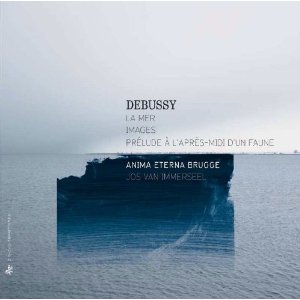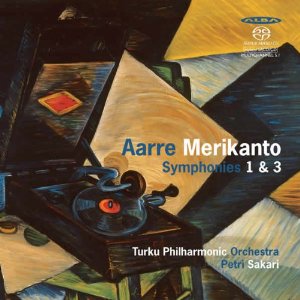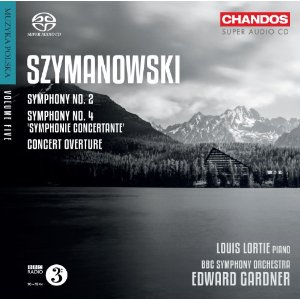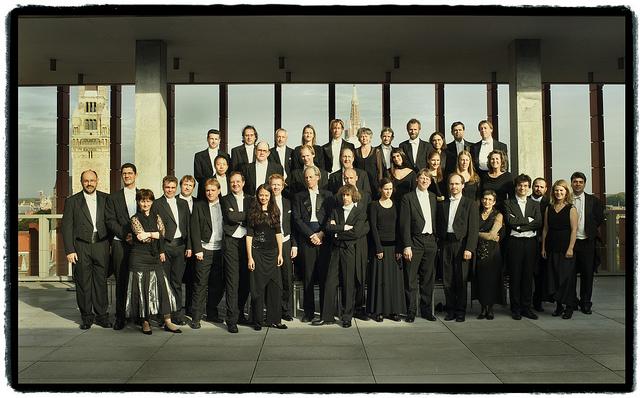
Is it worth going to the trouble of tackling Debussy’s orchestral music on period instruments? Jos van Immerseel’s versatile band have already given us historically informed Ravel and Poulenc, and this Debussy anthology has delicious moments. These pieces are already miracles of orchestral refinement. Here, the textures are noticeably clearer and we get to wallow in the sounds made by antique woodwinds and narrow-bore piston horns. Oboes and bassoons come off best – plangent, reedy and expressive. It’s as if the individual colours have been imperceptibly tweaked, made more vibrant. Like putting on a pair of glasses after a long night’s sleep. This La Mer doesn’t start with a muddy scramble, but with recognisable notes on low strings. Van Immerseel’s tempi are surprisingly restrained in an age of high-speed period practice, but never feel slack. The first movement’s harp-led sunrise is magnificent, the brass punchy yet never overwhelming.
Anima Eterna's Prélude à l’après-midi d’une faune is leaner and more parched. You’re made aware of the incredible space around Debussy’s lines; low horn pedals register with pungent clarity under Frank Theuns’s exquisite flute solo. Better still are Debussy’s Images – Gigues wonderfully damp and melancholy, and Les Parfums de la nuit dispatched with calm poise. A fascinating listen, quirkily documented and captured in glowing sound.

You feel sorry for composers whose careers developed in 20th-century Finland, forever doomed to have their music compared to that of Sibelius. Best to try and pretend that he never existed, and sample this highly attractive pair of symphonies on their own terms. Aare Merikanto (1895-1958) was a precocious, productive talent. His Symphony no 1 was started while he was a teenager, undergoing multiple revisions under the influence of various teachers. First performed in 1917, it’s an impressive if uneven work. Merikanto’s ability to handle large-scale structures is never in doubt. Nor are his talents as an orchestrator, though the musical ideas aren’t always memorable. Best to sit back and enjoy the ride – this symphony has many choice moments and a glowing conclusion.
The concise, late, Symphony no 3 is the real find. The Scherzo which opens the work is the most appealing, lovable piece of music I’ve heard in months. An exercise in lean, no-frills frivolity, it’s utterly without pretence and completely beguiling. The movement’s themes are developed in a brief, austere, Andante and a hyperactive, witty finale. Which ends, abruptly and prematurely with a radiant, technicolour cadence, as if Merikanto had decided he’d had enough and wandered off to do something else instead. I, however, hadn’t had enough, and promptly listened to the whole thing again. It was just as good, and I'm still not bored with it. Beautifully played by Petri Sakari’s Turku Philharmonic Orchestra. Nice cover art too.

Karol Szymanowski’s 1905 Concert Overture kicks this CD off in fine style. A bit like a cheeky retread of Strauss’s Don Juan with a happy ending, it's full of whooping horns and elaborate divided string harmonies. It is brilliant while it lasts, but leaving this listener feeling slightly queasy, as if I’d stuffed my face with too many jam doughnuts. Syzmanowski’s stock has risen dramatically over the past few decades. This brilliantly produced and performed Chandos anthology makes a persuasive case for this composer’s fragrant, big-hearted music. The best work here is the Fourth Symphony of 1932, a concertante work for piano and orchestra. Adrian Thomas’s sleeve note compares the piece to Bartók’s final piano concerto, and in both pieces there’s a decluttered, more lucid style. Louis Lortie’s idiomatic piano solo is nicely integrated into the orchestral image and not unnaturally spotlit. And it’s a really attractive work with a wonderful last movement.
Szymanowski’s larger-scale Symphony no 2 is harder to love. It opens unusually with a sinuous, bluesy violin solo, and the endless chromatic twists and changes of colour are always entertaining and skilfully handled. It’s the protracted second movement which begins to pall; an extended set of variations on a curiously innocuous theme, climaxing in an overblown fugue. Hugely impressive, but rather indigestible. The performance, though, is staggering, with the BBC SO taped in a suitably large-scale acoustic. Every gorgeous detail registers clearly under Edward Gardner’s generous direction.















Add comment